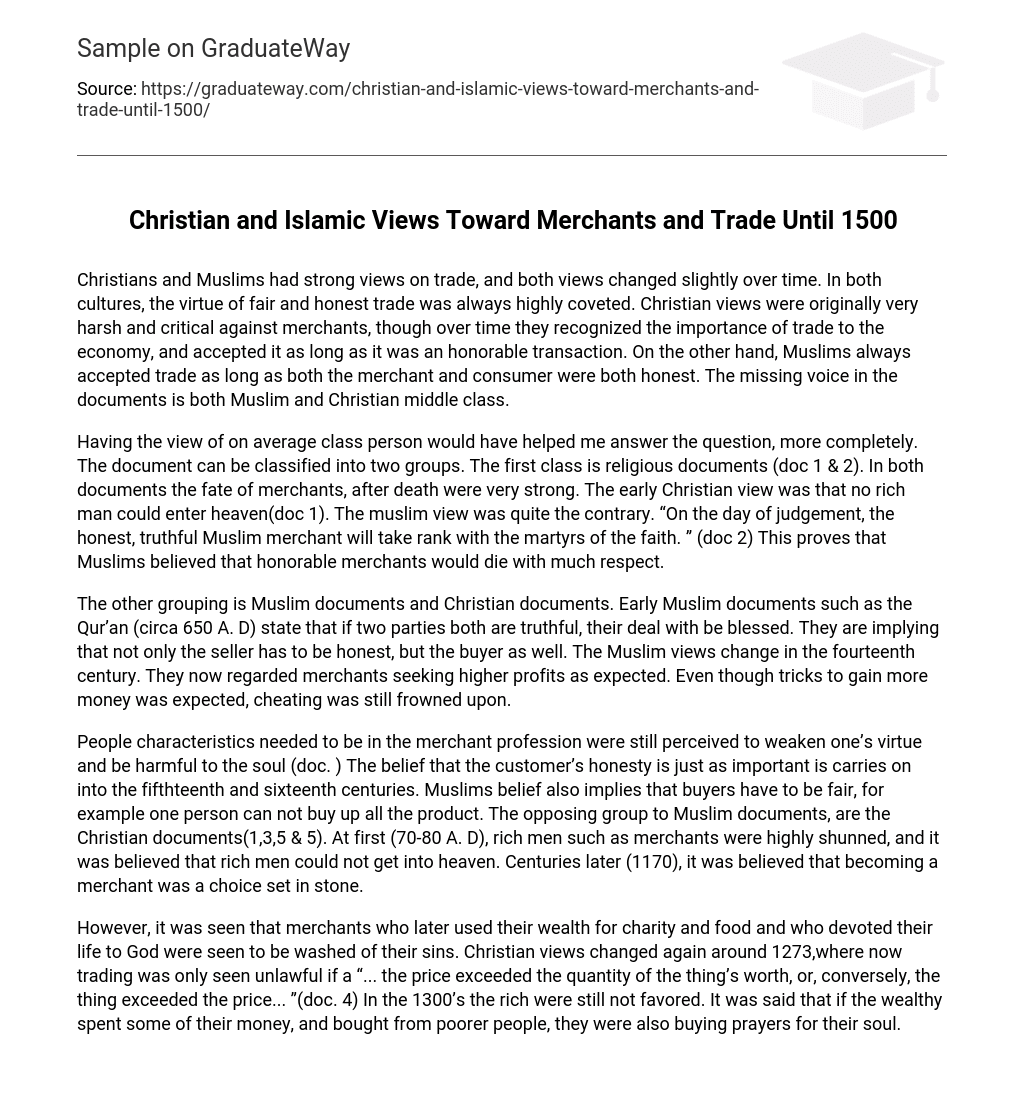Christians and Muslims had strong views on trade, and both views changed slightly over time. In both cultures, the virtue of fair and honest trade was always highly coveted. Christian views were originally very harsh and critical against merchants, though over time they recognized the importance of trade to the economy, and accepted it as long as it was an honorable transaction. On the other hand, Muslims always accepted trade as long as both the merchant and consumer were both honest. The missing voice in the documents is both Muslim and Christian middle class.
Having the view of on average class person would have helped me answer the question, more completely. The document can be classified into two groups. The first class is religious documents (doc 1 & 2). In both documents the fate of merchants, after death were very strong. The early Christian view was that no rich man could enter heaven(doc 1). The muslim view was quite the contrary. “On the day of judgement, the honest, truthful Muslim merchant will take rank with the martyrs of the faith. ” (doc 2) This proves that Muslims believed that honorable merchants would die with much respect.
The other grouping is Muslim documents and Christian documents. Early Muslim documents such as the Qur’an (circa 650 A. D) state that if two parties both are truthful, their deal with be blessed. They are implying that not only the seller has to be honest, but the buyer as well. The Muslim views change in the fourteenth century. They now regarded merchants seeking higher profits as expected. Even though tricks to gain more money was expected, cheating was still frowned upon.
People characteristics needed to be in the merchant profession were still perceived to weaken one’s virtue and be harmful to the soul (doc. ) The belief that the customer’s honesty is just as important is carries on into the fifthteenth and sixteenth centuries. Muslims belief also implies that buyers have to be fair, for example one person can not buy up all the product. The opposing group to Muslim documents, are the Christian documents(1,3,5 & 5). At first (70-80 A. D), rich men such as merchants were highly shunned, and it was believed that rich men could not get into heaven. Centuries later (1170), it was believed that becoming a merchant was a choice set in stone.
However, it was seen that merchants who later used their wealth for charity and food and who devoted their life to God were seen to be washed of their sins. Christian views changed again around 1273,where now trading was only seen unlawful if a “… the price exceeded the quantity of the thing’s worth, or, conversely, the thing exceeded the price… ”(doc. 4) In the 1300’s the rich were still not favored. It was said that if the wealthy spent some of their money, and bought from poorer people, they were also buying prayers for their soul.





